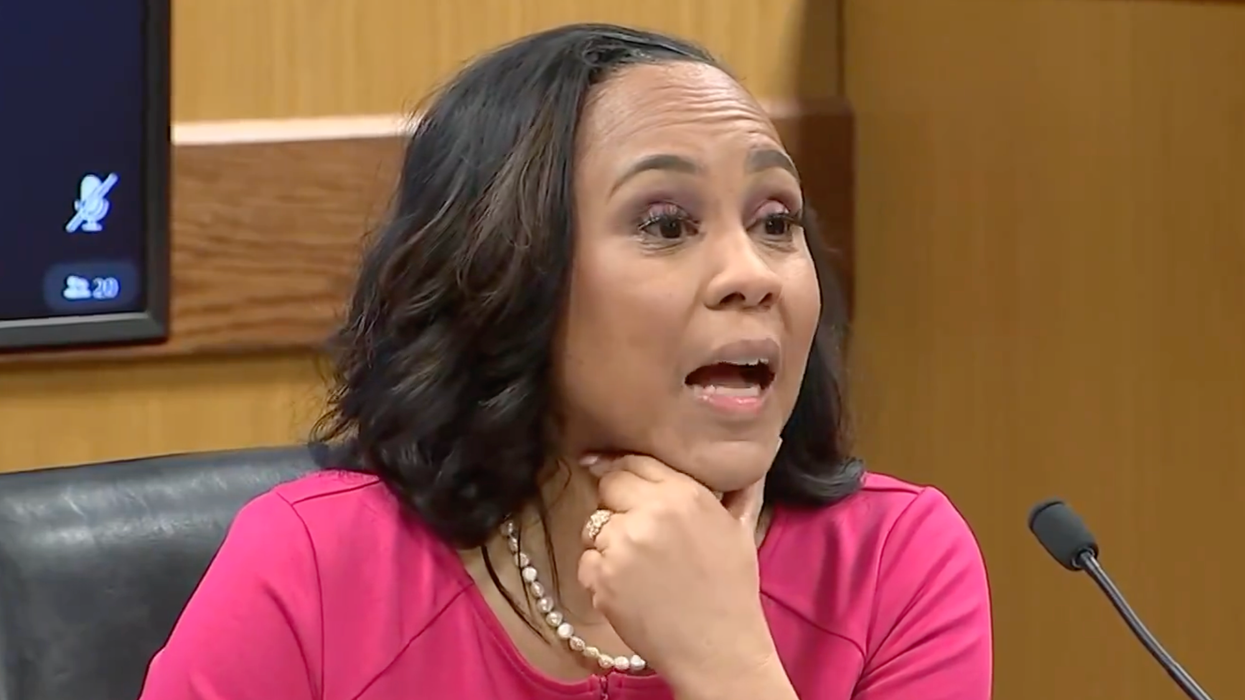'Totally unfounded': Legal experts blast GA appeals court’s disqualification of Fani Willis

Fulton County District Attorney Fani Willis (Image: Screengrab via MSNBC / X)
December 19, 2024 | 12:21PM ETBank
Fulton County, Georgia District Attorney Fani Willis is now officially disqualified from prosecuting President-elect Donald Trump in his Georgia election interference criminal case, following a Thursday decision by the Georgia Court of Appeals (COA).
As NPR reported, the three-judge panel — all of whom were appointed by Republican governors — ruled that Willis' relationship with special prosecutor Nathan Wade amounted to a conflict of interest that required her being removed from the case. Assuming she doesn't accept the court's decision, the matter will now go to the Prosecuting Attorneys' Council of Georgia (PACGA), according to Georgia criminal defense attorney Andrew Fleischman. However, Fleischman said this likely means' Willis case is "100% dead," as the PACGA "declined to prosecute the one recused case it already got."
In a subsequent skeet (the term used for Bluesky posts), Fleischman opined that there was a "total lack of analysis" in the COA's decision, saying there was "no rule or explanation here that any other criminal defendant could possibly use in their own case" and that "in such an important case, the court should explain itself."
READ MORE: Legal expert explains the one thing Fani Willis has to do to save her Trump investigation
Rolling Stone reporter Nikki McCann Ramirez posted excerpts of the dissent authored by Judge Ben Land (appointed by Governor Brian Kemp). He argued that attorneys representing Trump "failed to show that the district attorney had an actual conflict of interest, failed to show that she received any material financial benefit as a result of her relationship with Nathan Wade, failed to show that she had a personal stake in the conviction of any defendant, failed to show that her relationship with Wade involved any impropriety on her part, and failed to show that their relationship, including their financial arrangements, had any actual impact on the case."
"Because there was some evidence presented to the trial court that supported these findings, we are bound to accept them," Land continued. "The majority does not dispute these findings. Rather, it holds, with the citation of no supporting authority and apparently for the first time in the history of our state, that the mere existence of an appearance of impropriety, in and of itself, is sufficient to reverse the trial court's refusal to disqualify the district attorney and her entire office."
Brookings Institution senior fellow Norm Eisen wrote that the COA's ruling was "totally unfounded," and noted that "bipartisan experts agree" that Willis' relationship with Wade wasn't disqualifying on its own. But he added that despite Willis' removal from the case, "the indictment stands" and should be pursued "vigorously." Eisen reminded his followers that —just as in the New York hush money cover-up case — the Georgia indictment is not subject to the Supreme Court's immunity protections for official presidential acts.
Former U.S. Attorney Joyce Vance pointed out that the decision means "a new DA will be selected to take over the case," adding that this would likely amount to "a slow death knell if not an outright death for the case." In his own response to the ruling, Federation of American Scientists director of global risk Jon B. Wolfsthal lamented: "The entire American system of justice is broken." Attorney Bradley P. Moss, however, wrote that Willis "has no one to blame but herself" for her disqualification.
READ MORE: Fani Willis in testy exchange: I'm not the one 'on trial for trying to steal an election'